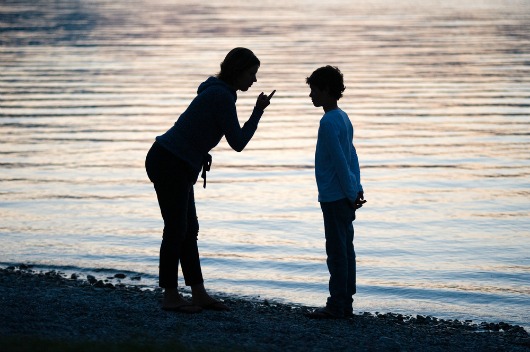
Are you wondering what the discipline alternatives for young children are? For John Leguizamo’s character in Freak, it was his father’s dreaded throwing of the chancla. For Little House on the Prairie’s naughty Nelly Olsen, it was the crack of her pa’s belt.
But physical punishment runs a fine line with what is considered abuse these days, and in real life parents can go to violent extremes: For instance, the recent tragic story reported internationally about a French father who stuck his three-year-old into the washing machine as punishment and wound up killing him when he set it to the spin-cycle.
There are countless other episode of unthinkable abuse just as horrific.
Terrifying accounts of parents going crazy on their child are sadly too common. Yet on the flip-side, in most circles, when it comes to disciplining children today, even a spank is looked down upon by experts. Gone are the days when the phrase “this hurts me more than you” was the cliché parents used on kids to excuse themselves for inflicting physical pain on them. Parents who are more old-fashioned say spanking works to keep the respect of your children intact. But others believe any form of spanking is just plain barbaric.
The truth is many of us can only do to our kids what was done to us by way of culturally ingrained traditions of discipline that we don’t necessarily agree with, but instinctively act on. It also depends on the child’s age: a quick slap to the hand may work as a temporary fix for a toddler because it instantly teaches them to associate pain with things that can harm them like fire or electrical sockets. But how much slapping is too much?
Bottom line is that studies find that any kind of spanking makes kids more aggressive. According to a 2010 study by the Tulane University School of Public Health children who are spanked frequently at age three, for instance, are more likely to be aggressive when they’re five. The results of the study also reinforce earlier findings which have found that children who are spanked have lower IQ scores. Frequent spanking has been linked to anxiety and behavior problems, as well as a higher risk for violent or criminal behavior, depression, and excessive alcohol use. Then why should any parent take that risk? No matter how frustrating a child can get, there are plenty of alternative disciplinary methods for keeping your household’s rules in tact through communication that Dr. Ana Nogales provides further in this article.
The American Academy of Pediatrics opposes striking children for any reason and recommends time outs and withholding privileges as solutions. One technique that Deborah, a New York mom uses with her son is to take a time out, breathe, and place their hands on their stomachs. She feels that a slap on the tush, or the cheek, teaches that it’s okay to express violence when you’re mad. With hands on bellies, it’s hard to spew mean words and the dark cloud seems to disappear faster for both mother and son. And when it comes to homes with more than one child, not hitting your children also supports a parent’s case about them not hitting their sibling. Parenting by example. Gentleness goes a long way and will allow you as a parent to never build a wall between you and your child. Remember that balance is important: Applauding your child’s good behavior is also as important as calling them out on their bad behavior. So don’t make it your bad behavior that your child remembers, but rather the lesson learned as a result of their poor choices.
Junior driving you crazy? Don’t resort to spanking. Dr. Ana, Nogales, a clinical psychologist and author of Parents Who Cheat: How Children and Adults Are Affected When Their Parents Are Unfaithful and The Book of Love, Sex, and Relationships offers 5 simple child discipline alternatives to spanking that work.
- Ask your child to think about what other choices they have for the next time, so that they can avoid repeating what they have done (not quite intelligently) this time: Avoid telling them what to do.
- Tell your child how proud you are of them in order to reinforce a behavior instead of bringing shame to what they did wrong.
- Encourage them to make wiser decisions by role modeling for them instead of telling them what to do simply because: “It’s what I say.”
- Instead of giving them what they want, celebrate your child when they have at least tried or made efforts to conquer their goals.
- Always ask what they could have done differently instead of telling them that: “This is the only way.”
Sources:
Spanking: New Study Says It Causes Aggressive Behavior in Kids
Top Reasons Why Spanking Never Helps












